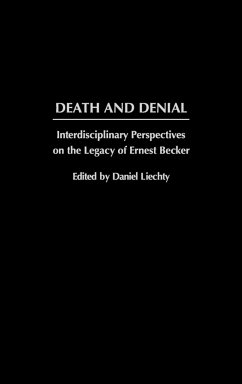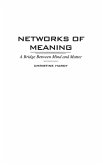In this edited collection of essays, professionals and academics from across the spectrum of the humanities and social sciences outline the ways in which Generative Death Anxiety theory impacts their field and discuss the work of its most famous proponent, Ernest Becker, whose ^IDenial of Death^R won the Pulitzer Prize in 1973. The essays demonstrate that recognition of this deeply rooted source of human behavior and attitudes provides a fertile organizing principle for the humanities and social sciences. The theory of Generative Death Anxiety is based on the recognition that if there is any uniquely human characteristic, it is the ability to anticipate and prepare for death. This recognition of mortality, however, runs directly counter to our survival instincts and must be repressed, thus creating a constant supply of repressed psychic energy-which, shaped by cultural and narrative factors, emerges in a rich array of human creativity and resourcefulness, but also in racism, religious chauvinism, reactive violence, and other types of pathological behavior. In this edited collection of essays, professionals and academics from across the spectrum of the humanities and social sciences outline the ways in which this theory impacts their field and discuss the work of its most famous proponent, Ernest Becker, whose ^IDenial of Death^R won the Pulitzer Prize in 1973. The essays demonstrate that recognition of this deeply rooted source of human behavior and attitudes provides a fertile organizing principle for the humanities and social sciences.
Hinweis: Dieser Artikel kann nur an eine deutsche Lieferadresse ausgeliefert werden.
Hinweis: Dieser Artikel kann nur an eine deutsche Lieferadresse ausgeliefert werden.








